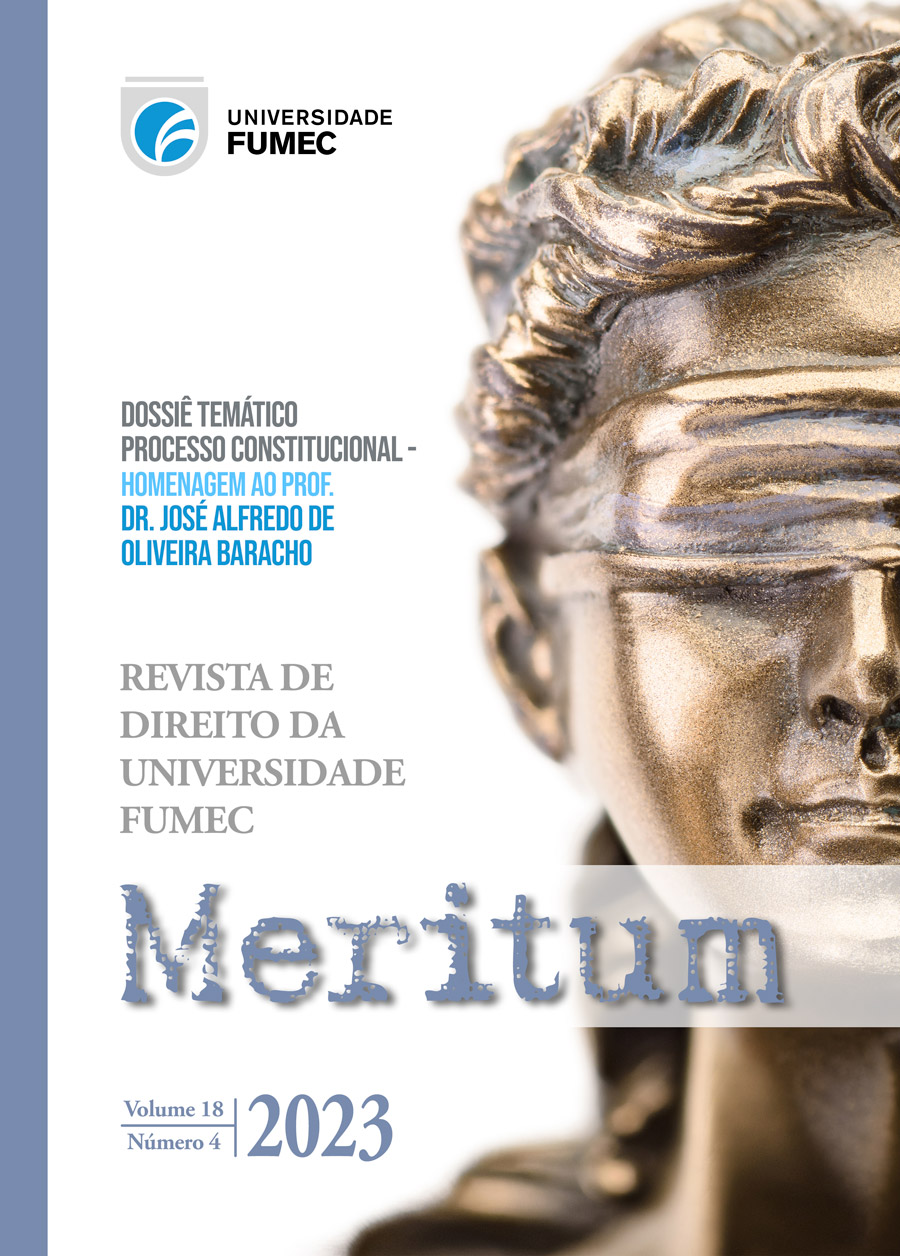A INCLUSÃO DIGITAL COMO GARANTIA DO MODELO CONSTITUCIONAL DE PROCESSO:
OS CONTRIBUTOS DE JOSÉ ALFREDO DE OLIVEIRA BARACHO PARA UMA TEORIA DEMOCRÁTICA DO PROCESSO NA ERA DA REVOLUÇÃO TECNOLÓGICA
DOI:
https://doi.org/10.46560/meritum.v18i4.9099Resumo
As grandes transformações da humanidade nas últimas décadas podem ser atribuídas ao uso da tecnologia, que vem ganhando cada vez mais espaço em todos os níveis da sociedade, por facilitar e acelerar a execução das mais variadas espécies de atividades. A extensão de sua aplicação na jurisdição e no processo mostrou-se, portanto, inexorável, trazendo consigo não apenas as vantagens de seu uso, mas também os riscos que lhes são inerentes. A possibilidade de violação de direitos como o acesso às novas tecnologias e a não discriminação algorítmica redunda num contexto de exclusão digital, que precisa ser considerado e analisado pela ciência processual, na busca pela construção de uma teoria democrática e inclusiva do processo digital, sendo este o objetivo deste artigo. Por meio do método descritivo e a partir de uma pesquisa bibliográfica, entendeu-se que a estruturação de uma teoria nesses moldes passa necessariamente pela assimilação irrestrita das contribuições teóricas de José Alfredo de Oliveira Baracho, a partir das quais é possível estabelecer um modelo constitucional do processo digital, centralizando-o como garantia autônoma prevista na Constituição, voltado para a construção de um espaço participado, inclusivo e isonômico de consolidação de direitos e, portanto, da própria cidadania.
Downloads
Publicado
Edição
Seção
Licença
Autores que publicam nesta revista concordam com os seguintes termos:
- Autores mantém os direitos autorais e concedem à revista o direito de primeira publicação, com o trabalho simultaneamente licenciado sob a Licença Creative Commons Attribution que permite o compartilhamento do trabalho com reconhecimento da autoria e publicação inicial nesta revista;
- Autores têm autorização para assumir contratos adicionais separadamente, para distribuição não-exclusiva da versão do trabalho publicada nesta revista (ex.: publicar em repositório institucional ou como capítulo de livro), com reconhecimento de autoria e publicação inicial nesta revista;
- Autores têm permissão e são estimulados a publicar e distribuir seu trabalho online (ex.: em repositórios institucionais ou na sua página pessoal) a qualquer ponto antes ou durante o processo editorial, já que isso pode gerar alterações produtivas, bem como aumentar o impacto e a citação do trabalho publicado (Veja O Efeito do Acesso Livre).






